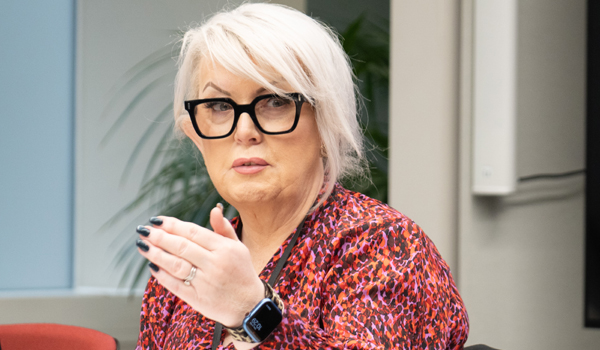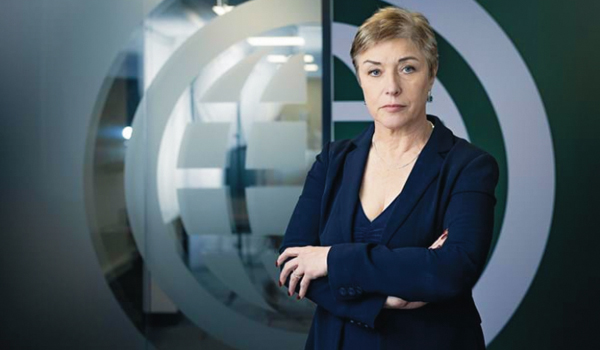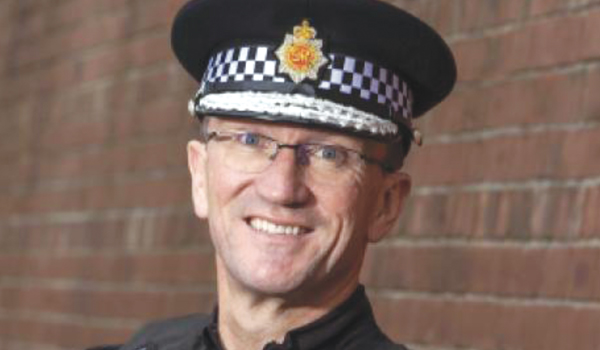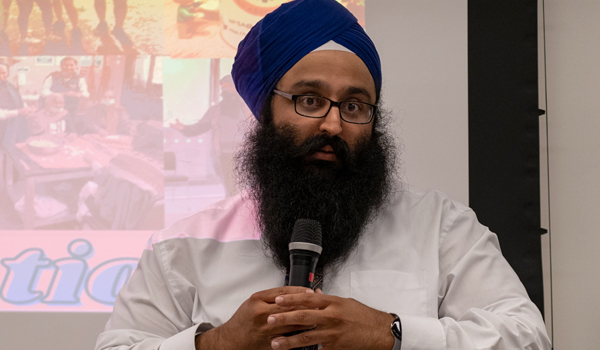‘We cannot afford false-starts’
Halving violence against women and girls is both an urgent and commendable challenge. To drive lasting progress, the Government must craft a strategy that is grounded in the real, lived experiences of victims – who demand profound and meaningful change, writes the Victims’ Commissioner.
Today marks the beginning of 16 Days of Activism – a global initiative calling for an end to violence against women and girls (VAWG). This campaign provides a crucial and meaningful opportunity to challenge the pervasive violence against women and girls that occurs every day, in our homes, as well as on our streets, causing immeasurable harm to women, girls — and society as a whole.
This year’s campaign comes at a critical point.
In July, the Government announced it would bring forward plans to halve VAWG over the next decade. This vision is commendable, welcome – and necessary.
The urgency implied by such an ambitious goal should not come as a surprise.
Recently, the National Police Chiefs’ Council (NPCC) labelled VAWG a ‘national emergency’ and the number of police-recorded cases each day – some 3,000 – an ‘epidemic’. It is estimated at least one in every 12 women will be a victim each year. Considering that most offences continue to go unreported, these figures are likely just the tip of the iceberg.
We cannot simply police our way out of this crisis. Any effective strategy will require a whole-society approach, with co-ordinated action across all sectors, including education, health and the private sector – with prevention a key focus. The significant harms of online abuse exemplify this only too well, with powerful tech platforms often failing to act.
If we are to achieve the ambition of halving violence against women and girls within a decade, we cannot afford false-starts
While a criminal justice response alone is insufficient, we must recognise the critical role our criminal justice agencies play in breaking the cycle of violence and holding perpetrators accountable. Reporting is a personal choice, and victims and survivors must have confidence in these institutions if they decide to come forward. For those who choose to report, it is essential that they feel supported to cooperate with investigations and back prosecutions. These institutions must operate in a way that feels meaningful to, and resonates with, survivors.
Yet, when speaking to victims, it is hard to escape the conclusion that, far too often, our criminal justice system falls short.
According to my recent victim survey, three quarters (76 per cent) of rape and sexual assault survivors were not confident the criminal justice system as a whole is effective. Findings from the recent Soteria victim survey – a landmark study mapping survivor experiences with police – paint a similarly troubling picture, with only four in ten respondents saying they would report a sexual offence to the police again.
These perceptions reveal important truths about victims’ experiences, shedding light on how much work needs to be done to understand why so many choose not to report the crimes against them – and why under-reporting remains such a persistent and widespread challenge.
The Victims’ Code sets out minimum standards for treatment that that criminal justice agencies, such as the police and prosecutor, should deliver for victims of crime. It includes key rights, such as access to victim services, that can provide victims with emotional and practical support. These are crucial to helping victims cope and recover.
The Victims’ Code has much to offer, but the problem is that we have no way of knowing how or whether these rights are actually being delivered. The data simply does not exist. Too often, victims tell me their rights aren’t being respected. The reason for this is simple: the Victims’ Code is unenforceable – it has no teeth. But this may soon change.
One of the aims of the recently adopted Victims and Prisoners Act was to address this very issue. The legislation fell short in some ways – and important work remains – but it did introduce key oversight and accountability mechanisms to help us track whether, how, and to what extent criminal justice agencies are delivering the rights outlined in the Victims’ Code.
These mechanisms are still being developed, and it is crucial we get them right. If we are to achieve the ambition of halving VAWG within a decade, we cannot afford false-starts.
Justice agencies must deliver for victims. Victims must have confidence to come forward, knowing their safety will be prioritised above all else. They must trust that the police will investigate their cases thoroughly, fairly, and promptly. Prosecutors must base decisions on evidence, not on the ‘credibility’ of the victim. The courts must ensure cases are heard swiftly, while memories remain fresh and resilience strong, so that victims can move on with their lives. And perpetrators must be relentlessly pursued, disrupted, and brought to justice. Only then can we begin to break the cycle of violence and create a safer society for all.
A criminal justice system that upholds the Victims’ Code and delivers justice for victims will be the lynchpin of any strategy that truly addresses VAWG in our society. However, if we fail to make progress in improving the treatment of victims, we risk stumbling at the first hurdle.
Victims’ Commissioner for England and Wales Baroness Newlove
This article was first published on the Victims’ Commissioner’s website https://victimscommissioner.org.uk/news/if-we-are-to-achieve-the-ambition-of-halving-violence-against-women-and-girls-within-a-decade-we-cannot-afford-false-starts/






